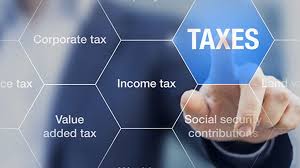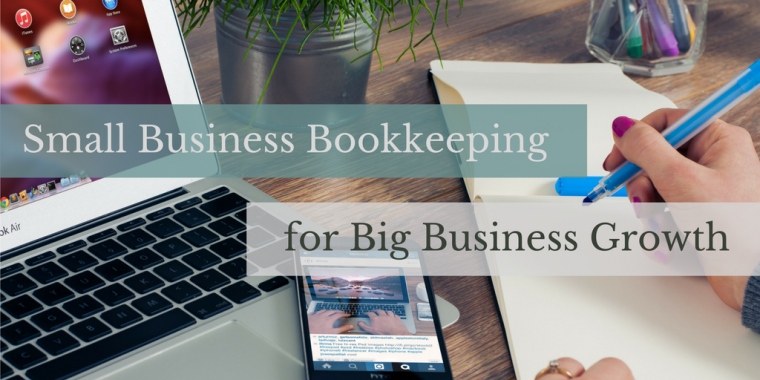What is tax planning? What are characteristics and types of it?
Tax Planning can be understood as the activity undertaken by the assessee to reduce the tax liability by making optimum use of all permissible allowances, deductions, concessions, exemptions, rebates, exclusions and so forth, available under the statute.
Types of Tax Planning
- Short-range and long-range Tax Planning: The tax planning which is made every year to arrive at specific or limited objectives, is called short-range tax planning. Conversely, long-range tax planning alludes to such practices undertaken by the assessee which are not paid off immediately.
- Permissive Tax Planning: Tax planning, wherein the planning is made as per expressed provision of the taxation laws is termed as permissive tax planning.
- Purposive Tax Planning: Purposive tax planning refers to the tax planning method which misleads the law. Under this type, there is no expressed provision of the statute.
Tax planning means intelligently applying tax provisions to manage an individual’s affairs, in order to avail the tax benefits based on the national priorities, in accordance with the interest of the general public and government.

Objectives of Tax Planning
- Minimal Litigation: There is always friction between the collector and the payer of tax. In such a situation, it is important that the compliance regarding tax payment is followed and used properly so that friction is minimum.
- Productivity: Among the most important objectives of tax planning is channelization of taxable income to various investment plans.
- Reduction of Tax Liability: As a tax payer, you can save the maximum amount from payable tax amount by using a proper arrangement of your enterprise working as per the required laws.
- Healthy Growth of Economy: The growth in an economy depends largely upon the growth of its citizens. Tax planning estimates generation of white money that is in free flow.
- Economic Stability: Stability is supplemented when the tax planning behind a business is proper.

Ten Characteristics of Good Tax Planning
- Some of the best tax plans originate with client generated ideas. Taxpayers who inform themselves about the basic tax laws and start brainstorming or passing ideas by their tax advisor typically end up with excellent tax results.
- A tax advisor who is curious and asks questions about your information is likely a competent tax advisor. This is the same person who probably has been to your business and wants to know what you have planned for the upcoming year and can offer suggestions while discussing your circumstances.
- Typically there is not one single tax saving strategy that reduces your taxes, but rather it is a combination of several techniques that produces good results. For example, wisely using accelerated depreciation methods while taking advantage of tax credits can produce a low tax burden in year #1 which also reduces estimated tax payments for year #2.
- Many good tax results are from a tax advisor who explains why an area of the tax law is not clear cut and is able to offer the client options on how to proceed. There are circumstances where both the taxpayer and the IRS can be correct. Many times a good tax result is from taking a justifiable position, even though the IRS could assert tax law to the contrary.
- Good tax planning does not waste tax deductions. There are circumstances when a taxpayer should not take a deduction in year #1 because the tax savings is not as great as it could be by saving the deduction for a later year. Some deductions are deferred by making elections while others are deferred by delaying expenditures.
- Sometimes the focal point of a good tax plan is simply deferring paying the taxes. For example, there are circumstances where taxes are going to be due, but flexibility exists in timing the year they are due.
- Good tax planning sometimes dictates paying some taxes now because paying now will be less expensive than paying in a latter year. This is especially true when a taxpayer is currently in a low bracket year. In these cases, the optimal tax strategy may be to recognize income earlier than what you originally planned or delaying an expenditure.
- Sometimes losses, especially flow-through losses from partnerships and S corporations, are not deductible in the year incurred. Good tax planning can help determine the best year to deduct losses. A similar theory applies to capital loss carry forwards.
- Tax planning should also consider how to reduce payroll and self-employment taxes.
- Good tax planning always considers the non-tax aspects of the circumstances and merges tax laws with financial prudence.

Tax Planning Strategies
Any successful tax planning strategy centres around three themes; reducing income, increasing deductions and utilisation of the lower tax rates available.
Below are some of the more common strategies employed to assist in Tax Planning.
Making Deductible Superannuation Contributions
This can be done either by a salary sacrifice arrangement, (if an employee) or claimed as a tax deduction by a self-employed person. As your superannuation fund only pays 15% tax on the contribution you have effectively shifted a portion of your business profits into a lower taxed environment.
There are limits however on the amounts for which you can contribute and claim a deduction. In 2013/14 those under 59 years of age at 30 June can only contribute $25,000 and those over 59 can contribute $35,000. Exceeding these amounts could result in an additional tax being levied on the excess, so care needs to be taken.
Review and Write off any Bad Debts
As you are entitled to a deduction in the year your write off a bad debt, identifying bad debtors and writing them off is an easy, cost effective strategy and should be done on a regular basis.
However, in order to receive the deduction, there must be no prospect of recovering the outstanding debt and if it is later recovered, it must be included as assessable income.
Review Timing of your Invoices
Whilst it is always a good idea to prepare and send out interim invoices for work partially completed, care should be taken especially if an interim invoice is going to be raised close to 30 June and the work will be completed early July. In this scenario, it may be prudent from a tax perspective to invoice for the completed job in July, (and have the income assessed in the following financial year) rather than have a part of the income assessed in the current financial year.
Review your Inventory at Year End
Many businesses fail to review their inventory, in particular for either obsolete or damaged items. These items generally have significantly lower values than current or undamaged stock, yet they are still valued at their full value. By revaluing these items, you can create a further deduction for your business.
Small Business Concessions
For business with an aggregated turnover of less than $2 million, there are various concessions available relating to deductions you can claim, in particular:
Trading Stock Rules: If the change in value of stock from the previous year is less than $5,000, there is no requirement to record this as income in the current financial year, providing an opportunity not to record an increase in stock values if it is less than $5,000.
Prepayments: By prepaying expenses which are for the next twelve months now, (e.g. insurance, subscriptions, registration etc.) you can claim a tax deduction for the entire expense in the current financial.
These are just some of the more common tax planning strategies available. Any strategy undertaken should be done in consultation with your accountant to ensure that it fits with your overall goals and objectives.
Corporate Tax Planning
This is a way of lowering the liabilities on a registered company. One of the most used methods is by including the deductions on business transport, health insurance of employees, etc. With tax deductions and exemptions provided under the Income Tax Act, 1961, your enterprise can largely reduce its tax burden in a legal way.
Rising profits of an enterprise means higher liabilities of tax. In such a situation, it is important that they dedicate enough time on tax planning that reduces liabilities. With a tax plan, both direct tax and indirect tax is lessened at the time of inflation. Not just this.
Tax planning means a proper planning of:
- Capital budget.
- Sales and Marketing costs.



